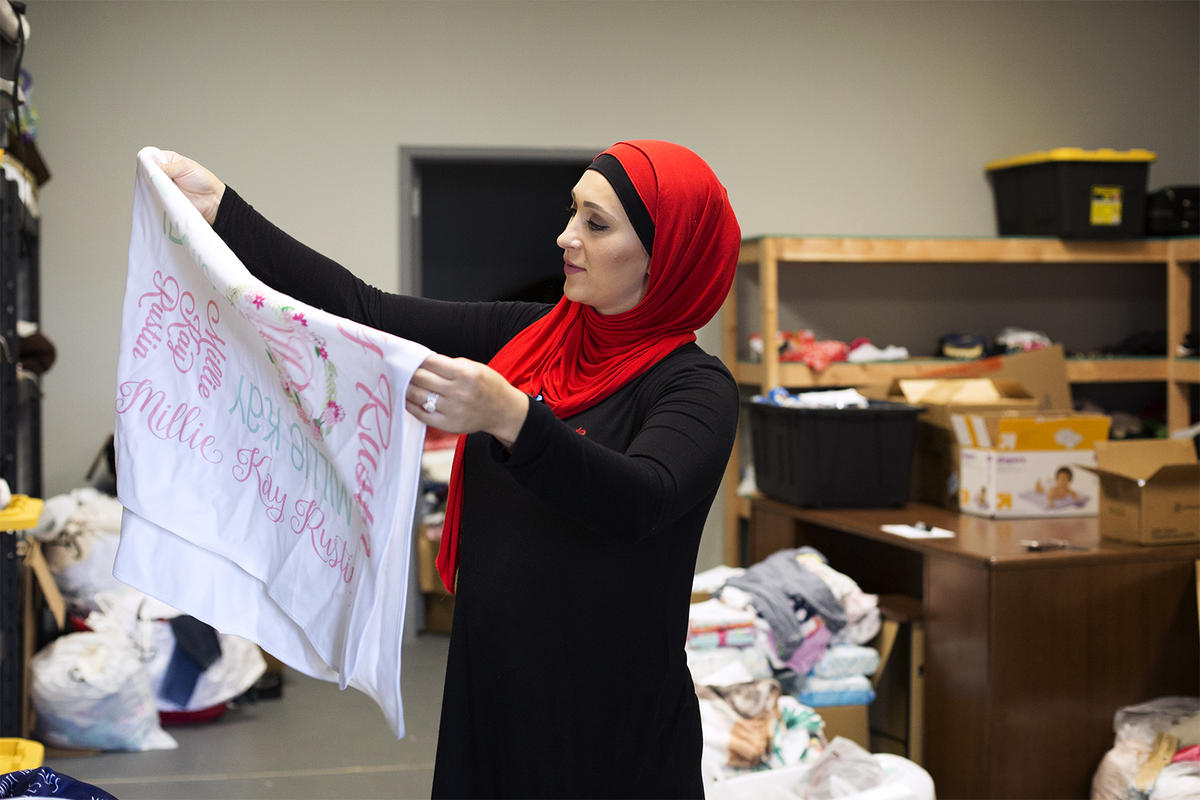Almost three decades ago, young Muslim Bosnian Nermana Huskić immigrated to the US to arrive in St. Louis, Missouri, escaping war and death in her home country. Now 32, the Muslim woman is paying back to St. Louis, St. Louis Public Radio reported.
“There were times when we didn’t have anything,” Huskić, who witnessed the Serbian aggression in the 1990s, said.
The war destroyed many families and killed more than 100,000 people. Luckily, her family moved to the US.
It was the year 2017 when Huskic launched her non-profit organization RukaNade to provide services to St. Louis city’s homeless population, seniors, youth, and families and orphans in Bosnia.

Nermana Huskic folds one of many resources that are donated to her from members of the community and businesses. Credit Carolina Hidalgo | St. Louis Public Radio
“I was in college for social work, so I obviously knew I was going to be in the social field. But I didn’t think about opening the organization,” she said.
“And in 2016, I was in Bosnia, and I did a project on my own, and the way it played out was exactly how I dreamt it a long time ago. So, to me, that was a sign from God that I needed to do something on a bigger scale.
“RukaNade means “hand of hope” in Bosnian, and it’s a hope for a better tomorrow and hope that we’re going to unite and we’re going to work for a better future,” she added.
Last year, RukaNade helped 4,256 people.
“We just opened a playground in Bosnia on July 9, and we’re planning on doing more. This will be the 5th one since the inception of the nonprofit. And we’re always at Gateway 180 homeless shelter every last Saturday of the month,” Huskić informed.
According to a 2014 report from Pew Research, Muslims make up less than 1% of Missouri’s population.
As one of the five pillars of Islam, Zakat or ritual charity is a religious obligation for all Muslims who meet the necessary criteria of wealth. It’s a mandatory charitable contribution, the right of the poor to find relief from the rich, and is considered to be tax or obligatory alms.
In addition to the obligatory Zakah, Islamic Shari’ah also encourages giving in optional charity, called Sadaqah.
Inside the ‘Nicest Place in America’, Syrian Refugee’s Restaurant